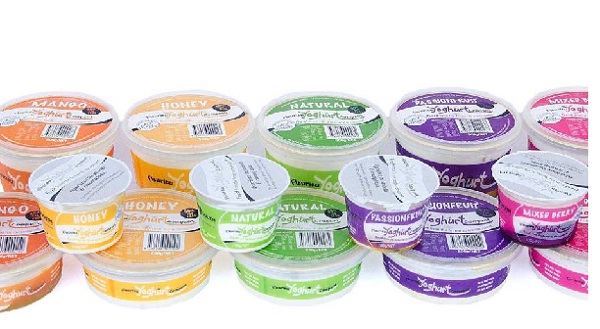
The Fleurieu Milk and Yoghurt Company has dropped its Halal certification due to pressure on social media.
An aggressive social media campaign pushing for a boycott on Halal products has forced a South Australian company to drop the accreditation and ditch a deal that was worth $50,000 a year.
The Fleurieu Milk and Yoghurt Company came under fire last week on its social media page with people suggesting the fee it paid to become Halal-certified was being used to fund terrorism.
Sales and marketing manager Nick Hutchinson said because of the campaign and a wish to avoid negative publicity the company decided to end its yoghurt supply deal with Emirates on Friday.
“The publicity we were getting was quite negative and something we probably didn’t need and we decided we would pull the pin and stop supplying Emirates Airlines,” Mr Hutchison said.
“Ninety per cent of it has been social media, but I have received calls from people that are quite unhappy, I guess, about our decisions and so forth, and [we have also received] a lot of emails.”
While many of these complaints came from interstate, and overseas, Mr Hutchinson said the company was worried the negativity would affect local customers.
What do you think about the move? How does Halal certification affect your purchase decisions? Have your say.
“When our small customer base in South Australia are reading this and starting to question us we thought, yeah maybe the negatives outweigh the positive,” he said.
Our farmers, they are just trying to be viable. They don’t deserve this hate mail, and neither do a lot of the other businesses that are getting it.
Nick Hutchinson, Fleurieu Milk and Yoghurt Company
The company began about eight years ago, and about two years ago was presented with the opportunity to begin supplying Emirates with yoghurt.
But in order to secure the contract the company had to pay a $1,000 fee to become Halal certified.
“We thought this was a great coup for the company, it would bring great publicity, great advertising and we decided to go ahead with it,” Mr Hutchinson said.
“It’s been quite successful for the company, but unfortunately over the last few days, a lot of negative publicity has come in about this Halal certification and where this money, where we are paying fees is being spent.”
Mr Hutchinson found the criticism quite harsh and said local businesses did not deserve to be bullied by these social media compaigns.
“The social media laws are quite hard to police,” he said.
“You can get on there and say whatever you like in fake accounts, but what we are trying to put across is these business that you are approaching, in our case, our farmers, they are just trying to be viable.
“They don’t deserve this hate mail, and neither do a lot of the other businesses that are getting it.”
Losing Emirates deal will have financial impacts
Losing the Emirates deal will impact on the business financially and Mr Hutchinson said some employees may lose some hours.
However he hoped the company could save its deal with Emirates, as its products do not contain gelatine.
I’ve received a lot of feedback to say they’re disappointed we’ve caved in to this kind of thing. We understand that, people are going to have their own opinion I guess, unless you’re in the shoes we were in.
Nick Hutchinson, Fleurieu Milk and Yoghurt Company
“Milk as a dairy product does not have to be Halal certified by law, and neither does yoghurt, which we were supplying, unless it contains gelatine,” he said.
“Now our yoghurt doesn’t contain gelatine so we can definitely argue the fact that it doesn’t need to be certified for Emirates [but] they play it safe. Anything that goes on their planes needs to be certified, so if they’re asked, they can automatically answer ‘yes’.
“What we are going to try and do is get our products tested, get some certificates that prove that our products don’t contain gelatine and try to continue to supply Emirates, if they’ll give us permission without the certification, but I mean that is unlikely.”
Now that the company has announced it will drop its Halal accreditation, Mr Hutchinson said he had received feedback from people who were disappointed the company had “caved in” to social media bullying.
“I’ve received a lot of feedback to say they’re disappointed we’ve caved in to this kind of thing,” he said.
“We understand that, people are going to have their own opinion I guess, unless you’re in the shoes we were in.”
The Islamic Society of South Australia, which provides companies with Halal certification, say the attacks against Halal products fall under the banner of “Islamophobia”.
The society’s Dr Waleed Alkhazrajy believed more explanation of Halal would ease the negativity.
What’s the big fuss about Halal certification?
From pies to Anzac biscuits, Halal certification is opening traditional Australian products to emerging markets. So why do some consumers object? The Bush Telegraph investigates.
“We are happy as well to help these companies engage in discussion or explanation for these members of the community that send these negative remarks and we say ‘look this is what it is, this what the process is’ and I’m sure that will alleviate their concerns or misunderstanding,” Dr Alkhazrajy said.
Dr Alkhazrajy said he did not think the attacks would take hold, and had not seen many companies drop their accreditation because of the anti-Halal campaigns.
“In fact, to a certain extent there is a boom because of the export of Australian products to south-east Asia, especially to Indonesia and Malaysia,” Dr Alkhazrajy said.
“Malaysia is taking a lot of food products from Australia and the companies that are exporting to these regions, they have increased their request for certifying their products.
“I don’t think there has been an increase in negative sentiments to these companies.”
Halal, in reference to food, is the dietary standard set out for Muslims in the Koran.
It governs food preparation techniques, as well the foods and ingredients that can be consumed under Islamic rules.





0 Comments